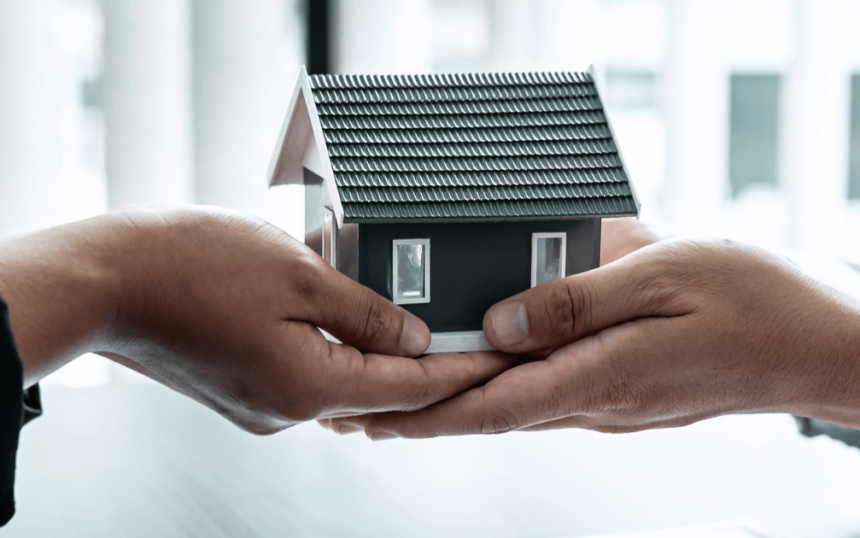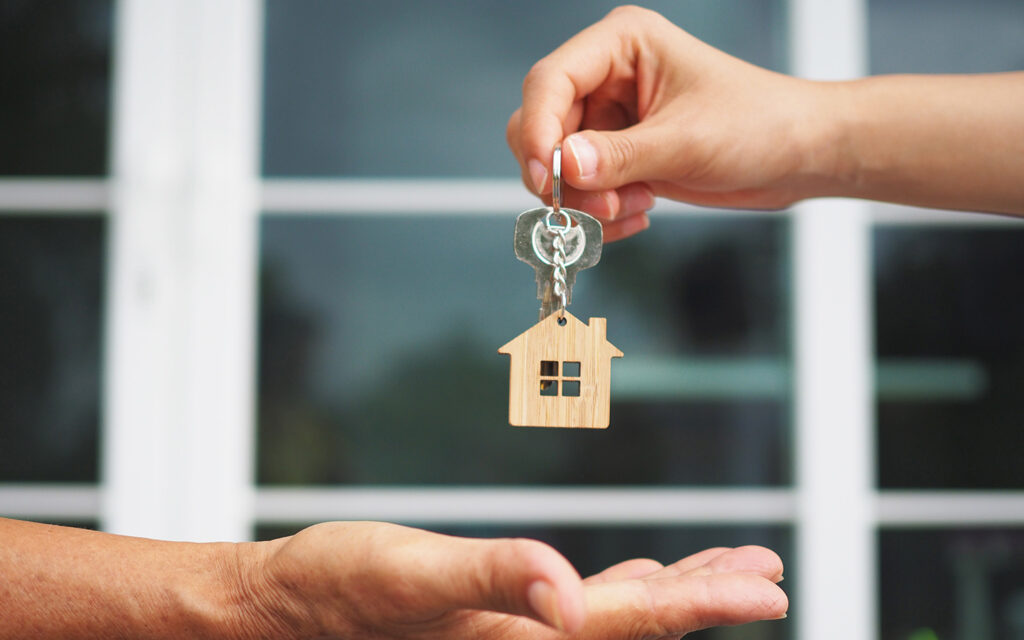
When To Buy Home Insurance?
Home Insurance
So, picture this, I’m sipping my morning coffee, half awake, half wishing I could just stay in bed all day when suddenly I realize I haven’t even thought about home insurance yet! Cue the rush to Google, and here we are, diving into the world of when to buy home insurance.
Buying a new home is an exciting experience for everyone, whether it’s your first time or you’ve done it before. By going to open houses or taking a real estate agent with you on home tours, you can see many of the features and decide what you want and don’t want in your future home. The process of buying a home and finding the right one can be both exciting and stressful. Buying a house can be less fun if you have to worry about things like negotiating the price, setting up a home inspection, and keeping track of your credit terms.
People often forget to get homeowners insurance when they buy and move into a new home. Getting this protection before the closing is a very important part of buying a house.
If you want to get a mortgage and sell your house at the same time, you will need homeowners insurance before the close. You need to make sure you have insurance ahead of time, even if the coverage doesn’t start until after the close. Most of the time, you may also have to pay upfront for a whole year’s worth of coverage.
Getting Homeowners Insurance Before Closing
Lenders usually want you to get homeowner’s insurance before the loan closes and keep it up to date while the loan is still open. By getting this insurance before you move in, you protect your investment against possible disasters. It is good for both you and the provider. It’s important to look into more than one insurance policy because they cover different things, and each place may have different needs. It may be necessary for you to add flood insurance to your coverage if your home is in or near a flood plain. You should consider getting flood insurance even if you don’t need it. In the same way, some homes in places that are prone to earthquakes may need earthquake insurance, and others may not. To pick the best coverage, you should carefully consider your wants.
Getting homeowner’s insurance could also give you useful information about the house. Because of this, experienced buyers often get insurance quotes before they buy something or choose a house.

Once you’ve picked the policy that fits your needs the best, make sure it meets the lender’s requirements. Most banks won’t give you a mortgage or home equity line of credit until you have homeowners insurance in place before the close. Sometimes, lenders may want more coverage than what is included in standard insurance.
You shouldn’t buy the insurance until you’re sure it meets your wants and the lender’s requirements. This step needs to be done before the close date. The insurance company will often pre-approve the policy as the closing date gets closer. They will then wait for your trust or title company to ask for proof of insurance. As soon as the insurance company gets this request, they will confirm coverage by email or fax to make sure everything is ready for the close.
Protecting Yourself And The Lender
Homeowner’s insurance crucially covers your new home against disasters such as fires and busted pipes. This coverage ensures that you will not be liable for all of the costly repairs incurred in the event of an accident. Rather, the insurance covers the expenditures minus your deductible. Homeowners can feel assured that their investment and property are secure with this safety net in place.
Homeowners insurance also protects your lender’s interests. Because they financed your house purchase, the lender wants to ensure that their investment is protected. Many lenders use an escrow account to handle insurance payments in order to speed the transaction. This account is intended to save money for real estate-related expenses such as property taxes and homeowner insurance. To allow the lender to pay your insurance premiums instantly, a portion of your monthly mortgage payment is deposited in an escrow account.
This agreement simplifies homeownership while also protecting the lender by ensuring continued coverage. By consolidating payments into a single monthly mortgage payment, you may avoid the difficulty of making multiple payments to different parties on different schedules, making your life easier and less stressful.
What Kind Of Homeowners Insurance Do You Need?
Standard homeowner’s insurance covers the cost of fixing or rebuilding your house if it gets badly damaged for reasons out of your control. It gives you important peace of mind. But depending on where you live, the kind of insurance or extra security you need may be different. Most of the time, standard insurance covers:
- The House And Other Buildings You Own: Your main home and other buildings, like storage sheds or separate garages, are covered.
- Personally Important Things: Anything that is worth money should be kept safe.
- Additional Living Expenses (ALE) cover short-term housing and related costs if repairs make your home unfit for living.
- Protection From Liability: Will help pay your court fees if someone sues you for injuries they got on your land.
Depending on where you live, you might need more security. Damage from things like floods and earthquakes is often not covered by standard insurance plans. If you live in a high-risk area, your loan may require you to add these coverages. You may also choose to do so for extra safety.
You can get extra insurance, like a Personal Articles Floater (PAF), for valuable things like jewelry or art pieces that are worth more than what the standard policy covers.
When picking home insurance, you need to consider your wants and the requirements set by your lender. Because every case is different, take your time choosing a policy that gives you the right amount of comfort and protection.
What Does Homeowners Insurance Cover?
When buying homeowners insurance, it’s important to know about all the different types of benefits available. Many important types of coverage are included in most basic plans.
The part of your insurance that pays to rebuild or fix up the frame of your home is called “dwelling coverage.” It includes installation parts and appliances that are permanently connected to the house. treated if the patient doesn’t have any symptoms for a certain amount of time.
You can get structural insurance for things on your land that aren’t part of your home, like a fence, guest quarters, or a detached garage.
As a result of a covered event, like a fire or theft, your personal property coverage will pay to replace or fix any things that you lose or damage. If you have pricey gold, art, or high-end furniture, you should look into getting extra personal property coverage to make sure they’re fully protected.
Loss of use coverage kicks in if an insured event badly damages your house and forces you to move temporarily. This part of your policy helps pay for things like hotel stays while your house is being rebuilt.
If someone gets hurt on your land, liability insurance will protect you from claims. It might pay for guests’ injuries or property damage, even if the damage was caused by repair workers.
There isn’t a single way to get homeowner’s insurance that works for everyone. You can change the basic policy to fit your needs by adding more riders. Basic plans come with basic coverage and deductibles. You can raise the limits of your coverage or add extra types of protection with these riders, like earthquake, flood, or personal property insurance. Customizing your coverage makes sure that it fits your wants and gives you complete peace of mind.
How Much Insurance Do You Need?
The size of your home insurance policy will depend on how much your house, valuables, and any unusual additions you want to cover are worth.
Talk to your agent about a possible dollar amount to figure out how much you need. Check to see if the total value of your belongings is less than the policy’s personal property dollar cap. Next, consider how much ALE coverage you would need if you had to leave your home for a long time. Finally, choose how much liability insurance you need. Most plans cover at least $100,000, but the Insurance Information Institute (III) says that the average homeowner should have between $300,000 and $500,000 to protect their things.

Find useful ways to lower your home insurance costs if you take your time. If you have a loan, don’t think you have to pay the loan amount or the home’s market value. The insurance company wants to know how much it would cost to rebuild your house tomorrow without taking into account how much the land it’s built on is worth. The amount covered might not be enough to cover the cost of the house.
Instead of going with the first insurance company the lender suggests, you should compare a few. Because the insurance company will decide how much is covered. Also, based on the insurance company, you might be able to save money if you have a “green” home, put in smart home technology, or combine several policies into one. It makes you more likely to look at or compare the policies that your present insurance companies offer.
You shouldn’t think that you will pay less than the market value for your insurance, though. Some homes have more expensive materials or details that are hard to find elsewhere.

What Happens If I Don’t Have Homeowners Insurance?
If you don’t have homeowners insurance, the only way you can escape big financial losses is by being lucky. Things like fires and storms could damage your home, and you would have to pay to fix it. Not having insurance could put you in even more financial trouble if the damage is so bad that you have to leave your home while fixes are being made. If things go really badly, like a fire, you might lose your house because you don’t have the money to rebuild it.
Most lenders want to see proof of homeowners insurance before they accept a mortgage application, even though it’s not required by law. You should start shopping for home insurance as soon as your offer to buy a house is accepted to get the best rates and coverage. You can avoid delays in the closing process and make sure you are properly protected if you move quickly. Even though you are not required by law to have homeowners insurance, you should get it to protect yourself from the high costs of rebuilding or fixing your house.
Is There A Penalty For Going Without Homeowners Insurance?
If you don’t have a mortgage, you are not required by law to get homeowner’s insurance, so there are no official effects. But not having insurance is very bad for your finances because if your house gets destroyed, you will have to pay for all the repairs and replacements.
When it comes to mortgaged homes, it’s different. Your lender will demand payment for force-placed insurance if your home insurance fails. This will be done by your insurance company. When compared to a regular homeowner’s policy, this lender-mandated insurance is generally more pricey and covers fewer things. If you have a mortgage, you will need some kind of homeowner’s insurance because the loan will make you. It doesn’t matter if it costs more.
To a normal homeowners policy, your lender may also want you to have flood insurance or other types of specialized coverage, depending on where your home is located. This law usually applies to homes that are in high-risk flood zones that the federal government has named. If you can’t get the coverage they need, the lender may try to get force-placed insurance, which usually costs a lot and doesn’t offer many benefits.
These penalties, like higher premiums and fewer coverage choices, are meant to protect the lender’s investment in your home. It is usually better to keep your own policy and, if needed, meet all of the lender’s requirements for extra coverage so that you don’t have to pay for insurance that is forced on you.

Conclusion
The most basic homeowner’s insurance plans have limits. Depending on where your home is located, you may need extra safety from certain natural disasters like floods or earthquakes. Most homeowner’s insurance plans don’t cover flooding caused by natural disasters, but they do cover flooding caused by problems like a burst pipe or water leak. You should get more flood insurance if your home is in a wetland or another place where flooding happens often. In fact, if you live in an area that is likely to flood, your landlord may make you add flood insurance to your home insurance.
Also, a lot of home insurance plans cover damage from wildfires. If you live in an area that is prone to wildfires, make sure that your policy covers enough damage to your house and any property nearby. In the same way, people who live in places that are prone to earthquakes might want to add extra earthquake coverage to their insurance. Basic insurance usually doesn’t cover damage from earthquakes, which can be very bad and destroy the house or do a lot of damage to its structure.
It is very important to know if your older home has been updated to meet current safety standards for earthquakes. A big earthquake can make your home unlivable, even if you take the right safety precautions. Even small earthquakes can do a lot of damage to buildings. Having both earthquake insurance and a regular homeowners policy can help you get the money you need to rebuild or fix up your home after an earthquake ruins it.
FAQ
Pre-pay a year’s worth of homeowners insurance. Show proof of insurance at least three business days before closing. (Some insurers may want it as far ahead as 15 days before the closing date.) Have a clause in your policy that the lender be informed beforehand if your policy is being canceled.
It takes about a month to close on a house, which should give you time to compare insurance rates, pick an insurer, decide what amount of coverage you want, pay your premium, and get your certificate of coverage. Lenders usually set up a trust account to hold your insurance payments and property taxes until the due date. They then use this account to pay your insurance company.
You might need more home insurance than your loan says you do. In the event that your house is damaged or destroyed by a fire, storm, or other insured disaster, homeowners insurance will protect your investment. It can also protect your things. Also, if you cause someone else’s accident or damage to their property, your home insurance’s liability coverage can help pay for their medical bills and court fees.
If you’ve kept your coverage with a company for several years, you may receive a special discount for being a long-term policyholder. Some insurers will reduce their premiums by 5 percent if you stay with them for three to five years and by 10 percent if you remain a policyholder for six years or more.
Make sure that your property insurance covers any big changes or purchases you make to your home. You also don’t want to pay for benefits that you don’t need. If the $5,000 you paid for a fur coat five years ago is no longer worth it, you should get rid of or lower your floater. A floater is an extra insurance that protects things like pricey jewelry, high-tech computers, and valuable art that your regular homeowner’s insurance doesn’t cover completely. You can save money without going over your budget by changing this service.
If you have been getting home insurance through a government-backed plan and you live in a high-risk area, like one that has a lot of wildfires, coastal storms, or high crime rates, you should talk to an insurance agent or company representative.
You can also call your state’s insurance department and get information on insurance companies that can offer you better terms. You can find cheaper coverage options if you buy insurance on the private market, where prices are more likely to be competitive.
While mortgage insurance protects the lender, homeowners insurance protects your home, the contents of your home and you as the homeowner. Once your mortgage is paid off, you have 100% equity in your home, so homeowners insurance may become even more crucial to your financial well-being.
Having homeowners insurance covers the structure of your home. It helps pay to fix or restore your home after a disaster or event that is covered, like a hurricane, tornado, lightning storm, house fire, or break-in. Your homeowner’s insurance will cover most buildings on your property that aren’t connected to your home. It includes a guest house, gazebo, or storage shed. You would have to pay for repairs, replacements, or rebuilding if your home was lost or damaged.
Having homeowners insurance covers both the building itself and the things that are inside it. Tools, sports gear, clothes, and furniture are just a few of the important things in your home that can be expensive to repair. Most of the time, homeowners insurance includes things inside and outside of your home. For example, if your cell phone or a brand-new holiday gift is stolen during a car break-in, the insurance will cover it. It also keeps the plants and trees in your yard safe.
Replacement Cost means if there’s a covered loss, your insurance company will pay to rebuild your home using materials purchased at current costs, up to your policy limits. It’s important to insure your home for at least 80% of its replacement cost.
Why? Because if you lose your home and your insurance only covers 80% of what it would cost to rebuild it, they might not pay the full amount of your claim.
As a general rule, you should cover your home for 80% of what it would cost to rebuild it. Some insurance companies might need higher numbers and/or built-in features to cover replacement costs that go up because of inflation.
Avoid any admissions of fault or liability when talking to your adjuster. Such statements can be used to shift blame, potentially decreasing the amount you might be compensated. Instead, focus on describing the damage and the events as they happened, without inserting personal opinions about who might be at fault.
Taking a neutral stance keeps the adjuster from making hasty choices and makes sure they see things objectively.
If you bring up old claims, it could make people think less of your current claim. For example, you’re likely to file claims often, or the damage may be worse than it really is. People are told not to talk about past insurance claims unless they are directly asked to.
By doing this, you prevent the reviewer from having any biases that might affect how they judge the truth or importance of your claim.

